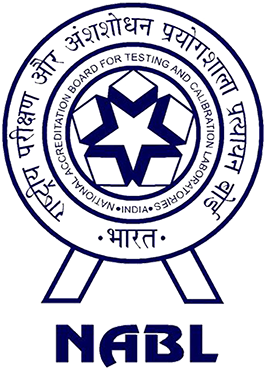
Programs Offered
The Bachelor of Technology (B.Tech) in Cyber Forensics and Information Security is a specialized undergraduate engineering program designed to address the growing global demand for professionals capable of safeguarding digital assets and investigating cybercrimes. This comprehensive four-year curriculum delves into the fundamental principles of computer science while placing a strong emphasis on the theoretical and practical aspects of cybersecurity and digital forensics.
Students in this program gain expertise in a wide array of critical areas, including network security, cryptography, ethical hacking, malware analysis, incident response, data privacy, and cyber law. The coursework is structured to provide a deep understanding of how to detect, prevent, and respond to cyber threats, as well as the methodologies for collecting, preserving, and analyzing digital evidence in a legally admissible manner. Practical, hands-on experience is a cornerstone of the program, often involving dedicated labs equipped with industry-standard tools for penetration testing, forensic imaging, and security monitoring.
Graduates of a B.Tech in Cyber Forensics and Information Security are well-prepared for diverse and high-demand career paths across various sectors. Potential job roles include Cyber Security Analyst, Ethical Hacker/Penetration Tester, Digital Forensics Investigator, Incident Response Analyst, Security Architect, Cloud Security Engineer, and Information Security Consultant. With the continuous rise in cyber threats and the increasing digitization of industries like finance, healthcare, government, and IT, professionals with this specialized skill set are becoming indispensable, ensuring a promising and impactful career trajectory.
The Master of Science (M.Sc.) in Cyber Forensics and Information Security is a postgraduate program designed for individuals seeking to specialize and advance their expertise in the critical and rapidly evolving fields of cybersecurity and digital investigations. This two-year program typically builds upon a strong foundation in computer science, information technology, or related engineering disciplines, delving into advanced concepts and practical methodologies.
The curriculum often includes in-depth studies of topics such as advanced digital forensic techniques, cyber threat intelligence, cryptography and data protection, incident response and risk management, malware analysis, network forensics, cloud forensics, and mobile forensics. Students gain hands-on experience with industry-standard tools and techniques used for identifying, collecting, preserving, analyzing, and presenting digital evidence in a legally admissible manner. The program emphasizes both defensive cybersecurity strategies to protect systems and data, as well as the investigative skills required to trace cybercriminal activities.
Graduates of an M.Sc. in Cyber Forensics and Information Security are highly sought after by a wide range of organizations, including law enforcement agencies (like the CBI and NIA), government bodies (such as CERT-In), cybersecurity firms, IT companies, financial institutions, and corporate security departments. Career paths often include roles like Digital Forensic Analyst, Cyber Security Engineer, Incident Response Specialist, Malware Analyst, Penetration Tester, Security Architect, and Cybercrime Investigator, with opportunities for significant career growth and impact in securing the digital landscape.
MSc., in Artificial Intelligence and Cyber Security
Artificial Intelligence has become the part and parcel of every one’s life and business. While we use artificial intelligence we need to work on the security and forensics of the same and hence this new degree is introduced from the academic year 2025 – 2-26.
Master’s program in Artificial Intelligence (AI) and Cybersecurity is crucial in today’s digital landscape. Here’s why:
Key Benefits
Acquire comprehensive knowledge: Gain in-depth understanding of cybersecurity principles, AI methodologies, and their applications in cybersecurity contexts.
Develop analytical skills: Learn to analyze data patterns, predict potential threats, and develop innovative solutions for complex cybersecurity challenges.
Hands-on experience: Get practical training in building secure systems, responding to incidents, and using AI frameworks like TensorFlow or PyTorch.
Understand policy and ethics: Study the policy and ethical considerations related to cyber operations and AI .













































